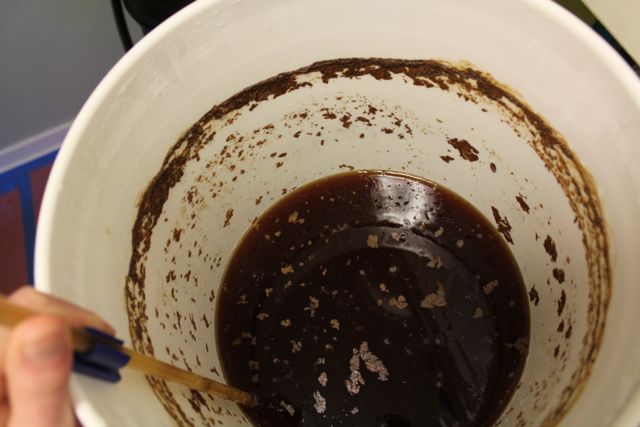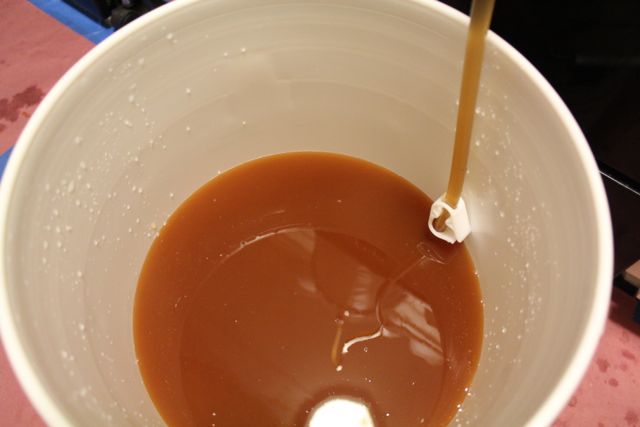elielilang
Active Member
Hi Everyone,
Im working on my second batch of homebrew. Here is what I started with
6lb amber LME
1lb grain
cascade hops at 60, 30, 5, 0
The Og was 1.042 (should have been 1.052)
I pitched the yeast too warm ~78f and the fermentation went very quickly. after 3 days there was no activity in my airlock. i checked and my gravity was at 1.01. I racked the wort/beer off into a secondary fermenter (a second bucket) as you can see from the pictures the beer looked like mud. there was about 2 inches of yeast on the botom of the primary fermenter.
So my questions:
Because of the warm and fast ferment is this beer going to taste bad?
Should I just dump it out?
will the final product be a cloudy as the wort is now?
how long should i leave it in the secondary?
Thanks for any info.
-Eli



Im working on my second batch of homebrew. Here is what I started with
6lb amber LME
1lb grain
cascade hops at 60, 30, 5, 0
The Og was 1.042 (should have been 1.052)
I pitched the yeast too warm ~78f and the fermentation went very quickly. after 3 days there was no activity in my airlock. i checked and my gravity was at 1.01. I racked the wort/beer off into a secondary fermenter (a second bucket) as you can see from the pictures the beer looked like mud. there was about 2 inches of yeast on the botom of the primary fermenter.
So my questions:
Because of the warm and fast ferment is this beer going to taste bad?
Should I just dump it out?
will the final product be a cloudy as the wort is now?
how long should i leave it in the secondary?
Thanks for any info.
-Eli




